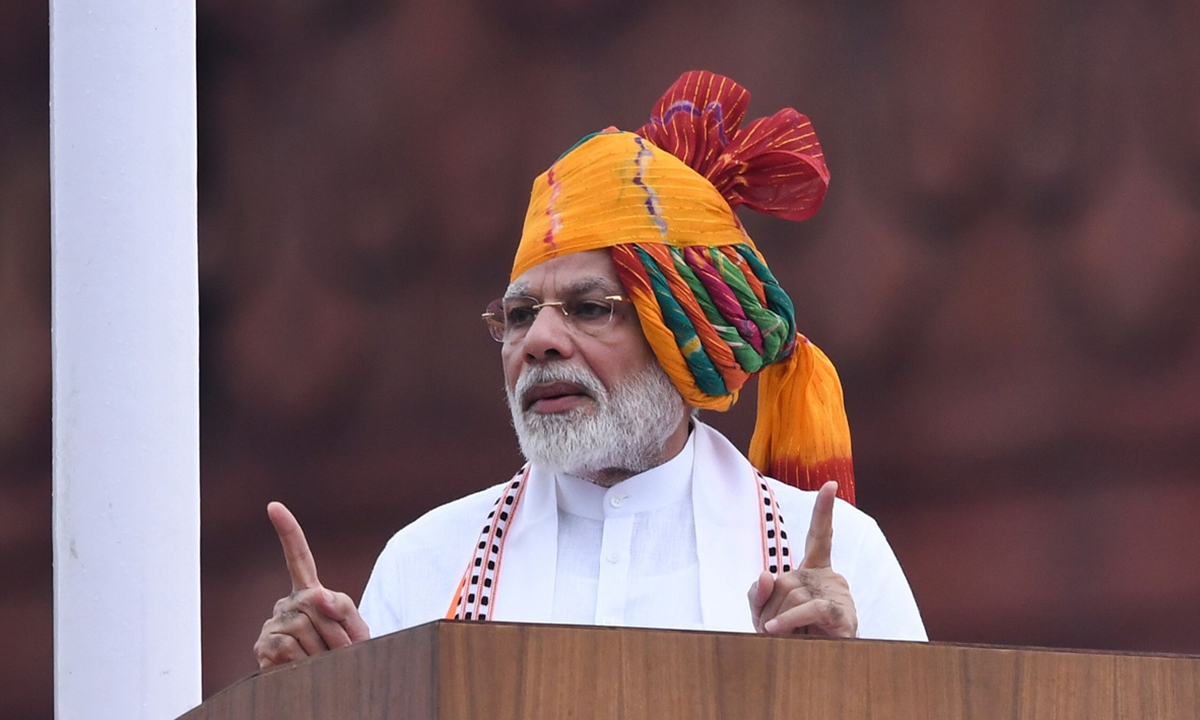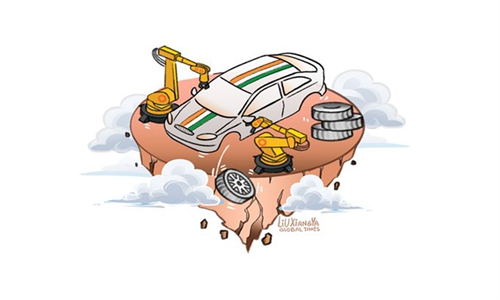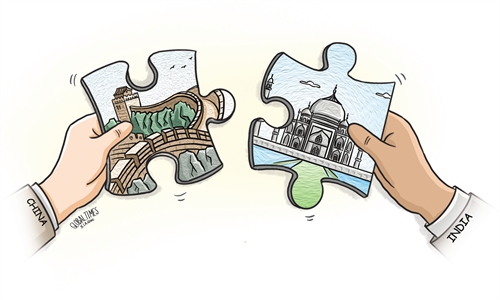
Indian Prime Minister Narendra Modi File photo:VCG
As exit polls suggest that India's Prime Minister Narendra Modi is likely to win a third consecutive term in office, Chinese experts noted that Modi's overall domestic and foreign policies will maintain continuity, as he is expected to persist in his efforts to bolster the country's economic growth.
Analysts emphasized the importance of India collaborating with China to uphold open communication to address differences in order to steer the bilateral relationship back on the track of healthy and stable development.
As the marathon general election that started on April 19 concluded on Saturday, a big win for India's ruling Bharatiya Janata Party (BJP)-led National Democratic Alliance has been predicted by 12 exit polls, NDTV reported on Sunday.
Although the Indian news outlet cautioned that exit polls "are not always accurate," it said that Modi, 73, and his party, the BJP, are widely expected to retain power for a third straight term. The real electoral scenario in the country will become clear on Tuesday when the Election Commission of India is scheduled to announce the official election results.
Analysts noted that if Modi wins, which according to AP will make him the second Indian leader to retain power for a third term after Jawaharlal Nehru, the country's first prime minister, Modi's overall domestic and foreign policies are expected to maintain strong continuity, with a low likelihood of significant change occurring.
Modi will continue to pursue the domestic and foreign policy objectives he has set for India, with a strong focus on propelling the country toward becoming the world's third-largest economy after the US and China within a few years, Qian Feng, director of the research department at the National Strategy Institute at Tsinghua University, told the Global Times on Sunday.
Additionally, Modi's strategic approach includes a continuous pursuit of enhancing India's global influence through diplomatic channels, Qian said, given the prime minister's vision for India to become a leading power.
Regarding China-India relations, experts said that despite the setbacks during Modi's second term, the possibility of a strengthened confrontation between China and India is unlikely if he continues in office.
"The relationship between China and a number of countries, including US allies like Japan and Australia, is now improving. In light of this, India may question why there is no sign of easing and an improvement in China-India relations so far," Lin Minwang, deputy director at the Center for South Asian Studies at Fudan University, told the Global Times on Sunday.
In an exclusive interview with US magazine Newsweek in April, Modi stated that for India, the relationship with China is important and significant. India and China "need to urgently address the prolonged situation on our borders so that the abnormality in our bilateral interactions can be put behind us," he said. Modi also noted that stable and peaceful relations between India and China are important for not just the two countries but the entire region and world.
The Chinese side has been committed to actively enhancing relations with India, believing that maintaining stable bilateral relations are in the interests of both sides. If India can work together with China in the next term of the prime minister, it could pave the way for improvements in the relationship between the two countries, analysts said.
It is imperative for India to uphold a strategic perspective toward China-India relations and collaborate with China to resolve differences through dialogue and communication, so as to make efforts to bring the relationship between the two countries back to a track of healthy and stable development, they said.


